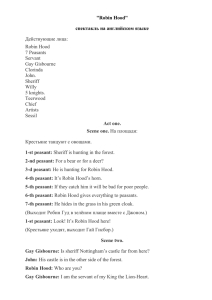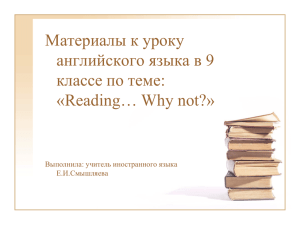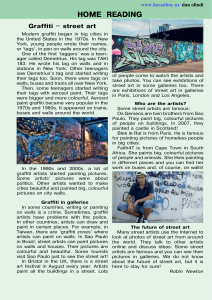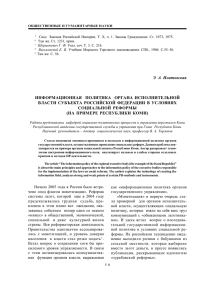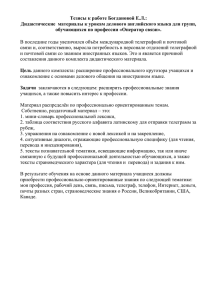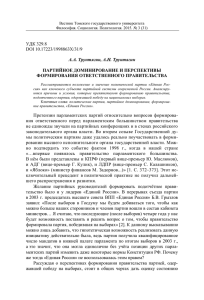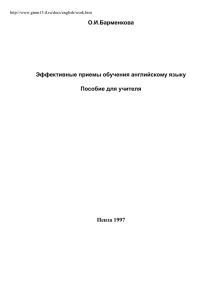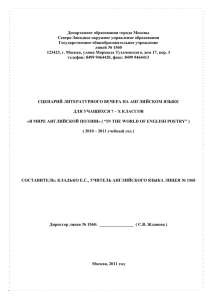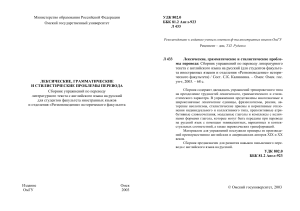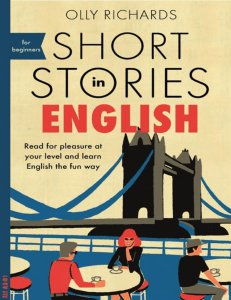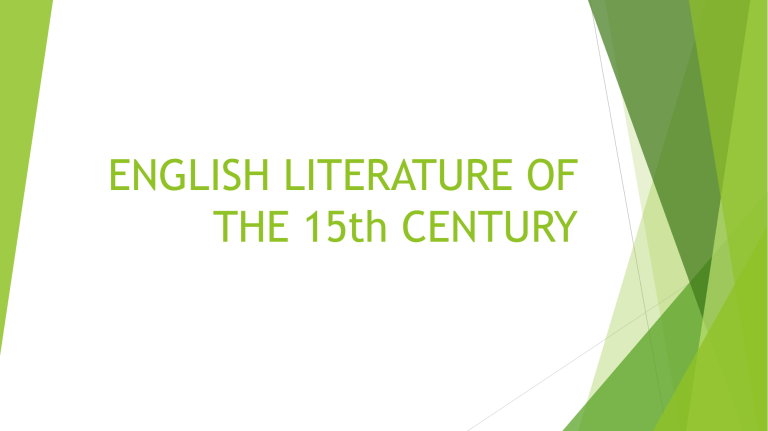
ENGLISH LITERATURE OF THE 15th CENTURY After Geoffrey Chaucer’s death in 1400 for two centuries there was no name in English literature which could be placed next to his. There were historical reasons for this. England was faced with a great misfortune: a feudal war between the descendants of King Edward III began. Feudal war It started in 1455 between the houses of Lancaster and York, and is known as the War of the Roses. A red rose was the symbol of the Lancasters, and a white rose was the symbol of the Yorks. It was the war of aristocracy in which common people took little part. In the situation of war, destruction and ignorance of the people it was impossible to continue what Geoffrey Chaucer had started. Nevertheless, the name of William Caxton is worth remembering, because he set up the first printing press in London and later in Oxford. Though there were no original authors in the 15th century, folklore could not stop developing. That century is famous for another genre of folklore - ballad. Ballads became popular in England and Scotland. They were lyrical poems, which were recited or sung to the lute or the bagpipe. Ballads and songs expressed the feelings and thoughts of people. They were handed down from generation to generation by word of mouth. Ballads continued to develop till the 18th century. BALLADS Historical (based on a historical fact) Heroic (about the people persecuted by law and their families) Romantic (telling of love and noble deeds) The most popular ballad cycle is “The Robin Hood Ballads”, which consists of about 40 heroic ballads with the element of romance. The ballads about Robin Hood consist of four-line stanzas, usually in the form of a dialogue between Robin Hood and other characters. Repetition of sounds is quite common in these ballads. THE RENAISSANCE The 15th century in Europe was the beginning of the Renaissance. It was the period when European culture was at its height. New social and economic conditions demanded that new ideology should appear. This ideology was to be opposed to the Catholic dogmas of the Middle Ages. This new ideology proclaimed the value of human individuality, the value of Man as such, whatever his birth or social status. This new outlook was called Humanism. The time demanded positive, rational knowledge, that’s why intellect, experience, scientific experiment were of vital importance. It was the time of great discoveries in science and geography. The time was glorified by the names of Copernicus, Columbus, Magellan, Leonardo da Vinci, Sir Thomas More, Montaigne, Francis Bacon and many other giants of mind. Sir Walter Raleigh Sir Walter Raleigh was a typical man of the Renaissance. He was a statesman, courtier, soldier, sailor, explorer, pirate, colonizer, historian, philosopher, poet. He was born in1552 and entered military service when he was a very young man. He was very brave, and Queen Elizabeth I dubbed him a knight. He fought with Spaniards at sea, he founded the colony of Virginia in North America and brought potatoes and tobacco to Europe. After Queen Elizabeth’s death Sir Walter Raleigh was imprisoned and spent 13 years in the Tower of London. He was executed in 1618 on a charge of conspiracy. In the Tower of London Sir Walter Raleigh turned to writing poetry and wrote “ A History of the World”. Unfortunately, much of his poetry is lost, but even what is left can prove that he was an outstanding poet. His poems are deeply philosophical and quite sad, as many of them very composed during his imprisonment.

